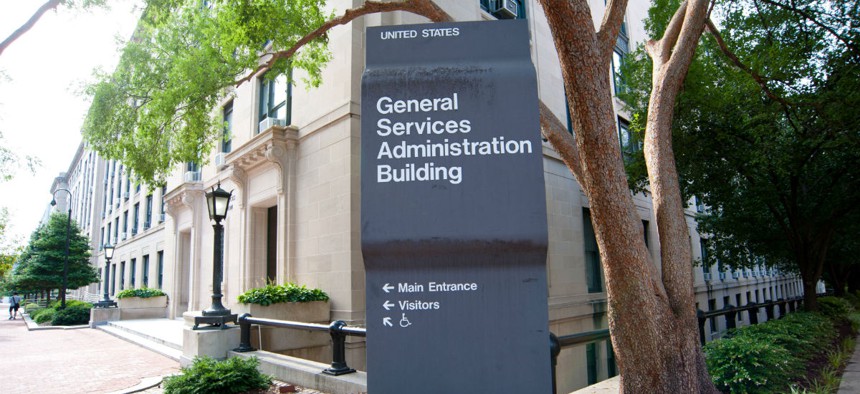
By Rena Schild / Shutterstock.com
GSA Isn't Tracking All of the Federal Government's Unused Leased Office Space
Unused space that goes unreported costs taxpayers $21 million yearly, watchdog says.
About 1 percent of federally owned buildings are vacant, according to the Public Buildings Service, but that figure omits 785,400 square feet of unused leased space worth $21 million a year in uncollected revenue, a watchdog found.
The inspector general for the General Services Administration, reviewing the government’s lease inventory for fiscal 2016 for a report released on Friday, said PBS “does not identify or report unused leased space under non-cancelable occupancy agreements where the tenant continues to pay rent. As a result, PBS is not backfilling the space or taking other steps to minimize the impact to the taxpayer.”
Secondly, GSA’s division is “not consistently complying with its policies for using non-cancelable occupancy agreements,” auditors wrote.
GSA officials did not fully agree.
The buildings the IG reviewed are primarily home to offices of the Internal Revenue Service, the Nuclear Regulatory Commission, and the Housing and Urban Development Department. “Tenants for 12 of the 263 occupancy agreements in our sample disclosed 785,400 square feet of unused leased space,” the report said. “All 12 of these occupancy agreements were non-cancelable, and the unreported space represented 6.5 percent of the total non-cancelable square footage in our sample. Rental payments for the unused space under these occupancy agreements total $21 million annually or $98 million through expiration.”
The reason PBS did not fulfill its requirement to report the space is that the tenants for the 12 agreements continued to pay rent, auditors said.
The watchdog recommended that PBS Commissioner Daniel Mathews develop and implement a process to ensure that PBS “reports and mitigates all unused space for all non-cancelable occupancy agreements in its lease portfolio” as well as “ensure that existing and future non-cancelable occupancy agreements comply with PBS’s policy.”
In a written response to a draft, Mathews challenged the IG’s introduction of the term “unused space,” saying it is not defined as a category in any of GSA’s statutory or regulatory guidance. In addition, the commissioner wrote, PBS “believes that the statement regarding a $21 million taxpayer cost for the unused space…is misleading, as it assumes PBS will be able to immediately return this space to the private sector lessors, which may or may not be allowed by the underlying lease.”
Still, PBS agreed to develop and implement a corrective plan for tracking the space.







